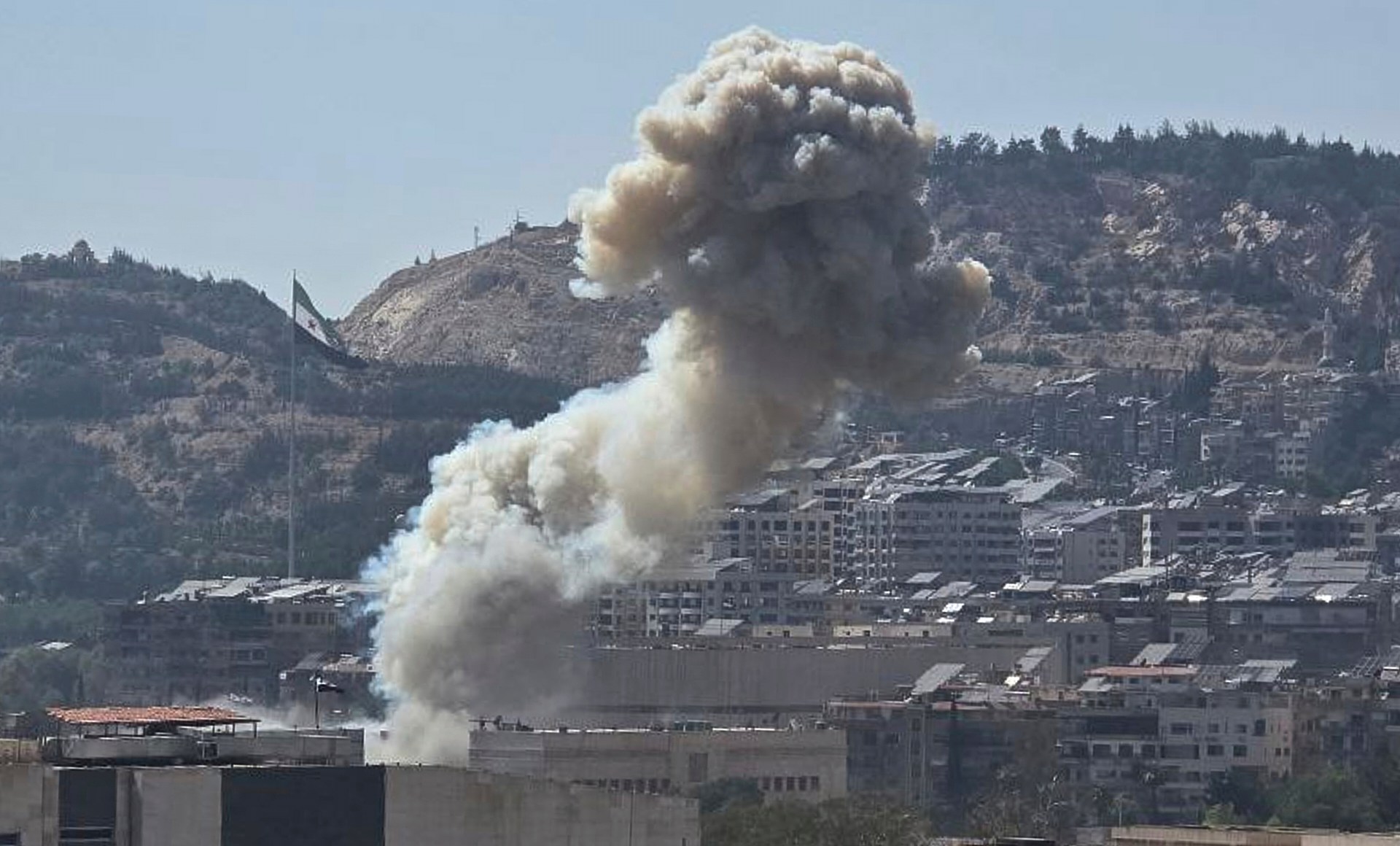Israeli Prime Minister Benjamin Netanyahu sent a video message to the Druze minority in his country on Wednesday afternoon. He urged them to avoid entering Suwayda to fight local Bedouin and government forces, and to avoid entering the southwest of Syria.
Yet as Netanyahu made the statement, his own forces were bombing Damascus, hitting the country’s Ministry of Defense, and injuring at least three people.
Netanyahu asserted that he had used Israel’s military might to defend the Druze.
The principal architect of the 2018 nation-state law, which has been widely criticized for marginalizing the Druze and other minorities, said, “My brothers, the Druze citizens of Israel, the situation in Suweyda in southwestern Syria is very serious.” He assured them, referring to the Syrian government, that “we are acting to save our Druze brothers and to put an end to the gangs of the regime.”
Druze in Israel
In Suweyda, there have long-standing sectarian tensions between the Druze and the local Bedouins. Meanwhile, Israel’s repeated threats against the presence of the Syrian military close to its border have stymied attempts by the newly formed Syrian government, which came into power in December after the fall of long-standing dictator Bashar al-Assad.
In Syria, there are roughly 700,000 Druze. Another 150, 000 Druze reside in Israel, where many, at least prior to the law enacted in 2018, believed they were bound by a “blood covenant” with their Jewish neighbors since 1948 and the founding of Israel, at the expense of the Nakba’s ethnic cleansing population. The majority of people still support the Israeli state, where they are enlisted in the military, despite the fact that some people now perceive themselves as “second-class” citizens.
Rami Zeedan, an associate professor at the University of Kansas and the author of Druze Studies Journal, said, “The Israeli Druze view themselves as Druze, as Israelis, and as Arabs.”
The perception that both Jews and Druze are persecuted minorities contributes, he said. The Israeli Druze believe they still stand to gain a lot more from Israel than any other imaginable future. The Druze community’s protection serves as the foundation of this alliance.
He continued, “The Israeli Druze are now trying to use that to pressure the Israeli government to defend fellow Druze in Syria,” and he also cited the justification for Israel’s attacks on Syria, where the Druze community has historically been hostile, even as some leaders become more close to Israel.
Pure opportunism
Israel has historically attacked Syria, even prior to the most recent Druze-related violence to occur in Suwayda.
Israel has invaded and occupied Syria since 1967’s 14-year conflict, excluding the western Golan Heights, which it has occupied since 1967, and has fought with it hundreds of times.
Leading Israeli analysts speculate that the Israeli government’s and its troubled prime minister’s personal and political goals may have been the cause of these recent attacks rather than their concern for the welfare of the Druze.
Former Israeli ambassador and consular general in New York Alon Pinkas told Al Jazeera, “It’s pure opportunism.” In a statement made in reference to another regional ethnic group, he said, “Once again, it’s nice to pretend we’re helping our friends the Druze in the same way we never did our other friends, the Kurds.”
Pinkas identified a number of reasons Israel’s recent strikes on Syria have helped to boost Netanyahu’s newfound self-confidence as a leader of the war, to resuscitate his corruption trial, and to strengthen the “delusion” that Israel has somehow managed to reshape the Middle East through military force alone.
He also said, “He doesn’t want a strong central government led by al-Sharaa,” adding that a unified Syria is possible. He wants a weak central government that deals with the Druze and Bedouin in southern and northern regions that are ruled by the Kurds.
In essence, Israel can pursue its interests in Syria’s southern region if Syria is left unaltered, he continued.
Netanyahu has repeatedly argued that Israel will support only a demilitarized Syria that includes Suwayda and is not associated with Damascus. In effect, this gives Israel a buffer zone, which strengthens the military justification for its actions in Syria.
hollowed out by war
The attacks on Syria also have the additional benefit of sustaining the crisis that has plagued Israeli society and sustained its government through numerous scandals since the Hamas-led attack on October 7, 2023, and the subsequent conflict in Gaza.
Since then, Israel has attacked Syria, Iran, Yemen, and Lebanon.
People don’t seem to care about war anymore; instead, it seems like they do. Israeli political analyst Ori Goldberg described the public’s response to the most recent attacks as “ennui”.
“War is fleeting, but it gives people energy and meaning.” He claimed that the 12-day conflict in June, which sparked global concerns about regional escalation, had been forgotten about by people as well as the Iranian conflict.
According to Goldberg, all the cautions and caveats that would ordinarily come before military action had been replaced by ever-evolving dangers that necessitated new escalations.
He claimed that it was “dangerous.” The Druze are irrelevant to Israelis. There is this worn-out, “OK, dude,” attitude from the beginning; it’s just a new threat, a new front. Let’s do it]attitude] ‘”.
Source: Aljazeera

Leave a Reply